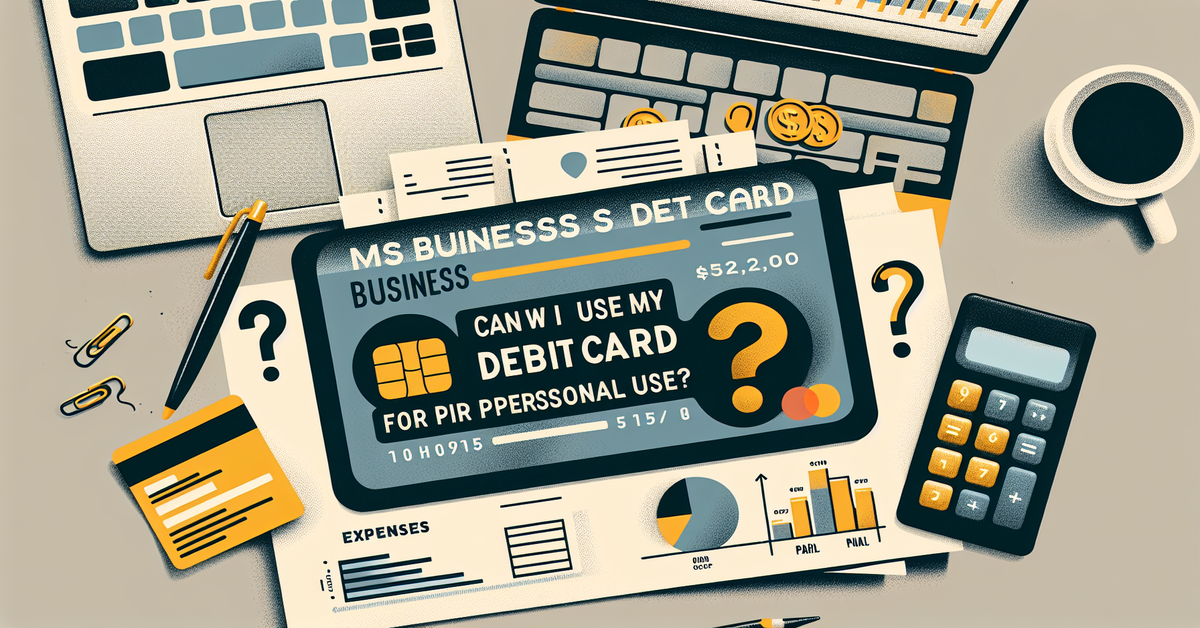You might be tempted to use your business debit card for personal expenses, but it's worth considering the potential repercussions. Mixing personal and business finances can lead to legal complications, affect your tax filings, and even tarnish your business's credibility. Maintaining clear distinctions between your accounts is essential, yet many still wonder about the practicality of such a decision. What are the real risks involved, and how can you effectively manage your finances without straying into dangerous territory?
Understanding Business Debit Cards
Business debit cards are financial tools designed primarily for managing business expenses, but understanding their features and limitations is essential for anyone considering using them for personal transactions. They offer immediate access to funds in your business account, helping you maintain control over expenses. However, these cards often come with restrictions, such as transaction limits and fees for certain types of purchases. Additionally, using a business debit card for personal expenses can complicate your financial records, making it difficult to track business-related spending accurately. It's vital to be aware of these aspects before deciding to mix personal and business finances, as doing so may jeopardize your financial organization and security. Always prioritize safety and clarity in your financial dealings.
Legal Implications of Mixing Funds
Mixing personal and business funds can lead to significant legal ramifications, complicating your financial responsibilities and potentially exposing you to liability issues. When you use your business debit card for personal expenses, you risk:
- Tax complications: The IRS may scrutinize your financial records, leading to potential audits and penalties.
- Limited liability protection: If your business faces legal action, mixed funds can undermine the protection of your personal assets.
To safeguard yourself, it is crucial to maintain clear boundaries between personal and business finances. Doing so not only minimizes legal risks but also promotes better financial management and transparency. Always prioritize the integrity of your financial practices.
Accounting Challenges and Solutions
Using a business debit card for personal expenses can create numerous accounting challenges that complicate financial tracking and reporting. When you mix personal and business transactions, it becomes difficult to maintain accurate records, leading to potential discrepancies during audits or tax filings. This can also distort your financial statements, affecting cash flow analysis and budgeting.
To address these challenges, consider implementing strict separation of accounts. Utilizing software that categorizes transactions can help in tracking expenditures effectively. Regularly reconciling your accounts guarantees any errors are caught early. If you do accidentally use your business card for personal items, document the transaction clearly. Maintaining transparency in your records can mitigate risks associated with confusion in financial management.
Best Practices for Financial Management
Effective financial management requires a clear strategy that separates personal and business expenses to guarantee accurate tracking and reporting. By establishing this distinction, you not only simplify your accounting but also enhance financial transparency. Here are some best practices to help you maintain this separation:
- Use separate accounts: Open distinct bank accounts for personal and business finances to avoid mixing funds.
- Implement a budget: Create a budget for both personal and business expenses, allowing you to monitor spending effectively.
Alternatives to Using Business Cards
Maintaining a clear distinction between personal and business finances can lead you to explore alternatives to using business cards for your transactions. One effective option is setting up a dedicated personal checking account, which allows you to manage your finances without the risk of mixing funds. Additionally, consider using a personal credit card for non-business expenses, providing rewards and benefits while keeping your business transactions separate. Budgeting apps can also help you track both personal and business expenses, ensuring you stay organized and compliant. Ultimately, a prepaid card for personal use can limit spending and simplify your finances, providing a safety net against unintentional business-related charges. These alternatives promote financial clarity and security.

